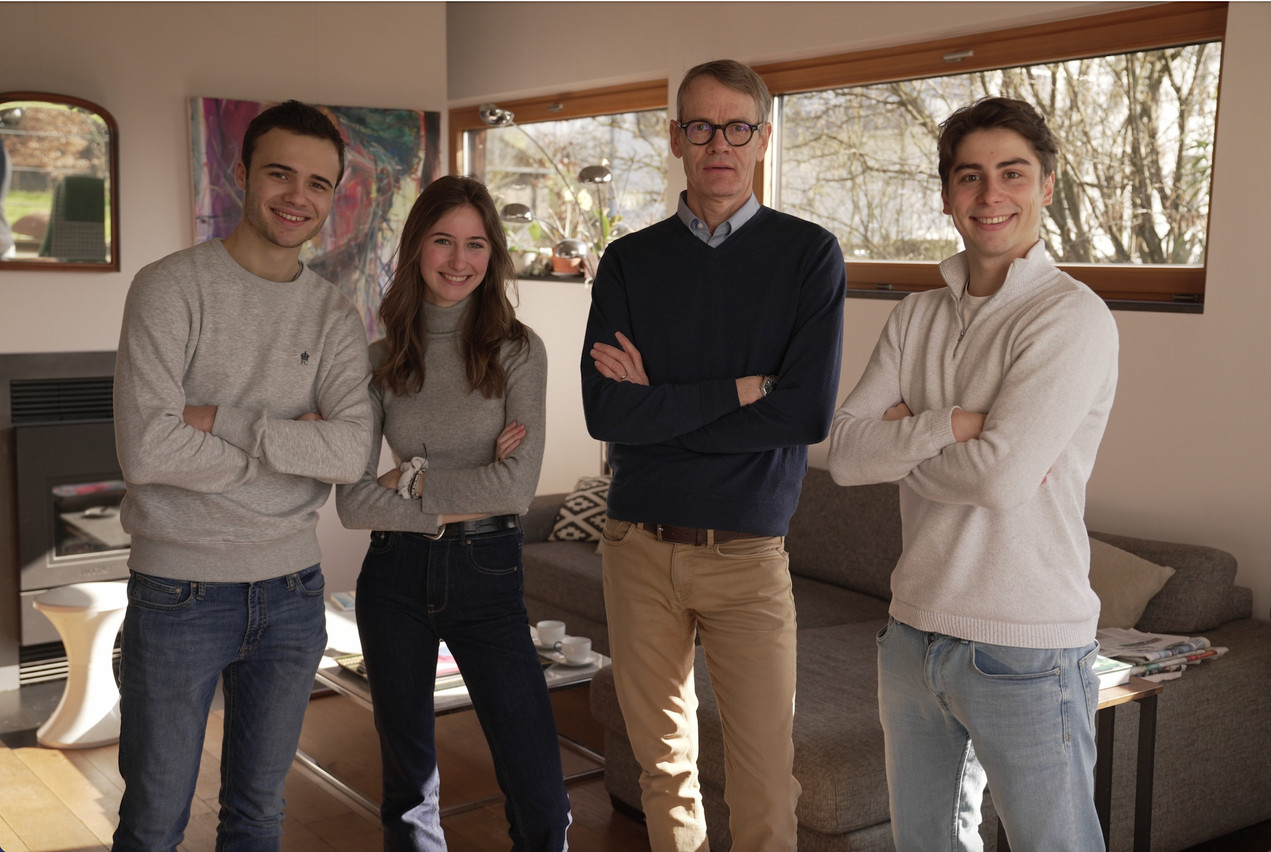. The idea was to set up a platform for transgenerational cohabitation, where older people can offer rooms to students looking for accommodation. This is a way of combating the shortage of accommodation while “creating links.” Its name: WeConnect. On Thursday 4 May, it became a reality.
Originally, Ivo Silva (21) and Clémentine Offner (21), already known for having won the Jonk Entrepreneuren 2020 mini-company competition with FrëschKëscht, had three days to come up with a project during the European trades competition. Back in Luxembourg, they continued to work on it and . This led to their participation in Gen-E in Tallinn (Estonia), where they won the FedEx prize in July of the same year.
Business plan, market analysis, search for partners, etc. led to the registration of the young company in April as a Societal Impact Company (SIS)--. Then, a few weeks later, the website was launched.
Uni as a partner
Silva is delighted to have obtained the support of the University of Luxembourg. “It will recommend us to the (many) students looking for accommodation.” But also from four municipalities, including Dudelange and Bettembourg. “Discussions are underway with the city of Luxembourg. In a month’s time, there should be about ten of them” to sign up as partners, he hopes. WeConnect is also in contact with senior clubs.
Two people have since joined the co-founders. Gilles Heinesch (21), a student pilot, even though he is aiming for a career as an entrepreneur. He was already part of the FrëschKëscht adventure and helped develop the website WeConnect.lu. And Christian Gutenkauf (59), an independent real estate manager, who accompanied the young people in the creation of their mini-company and brings his accounting expertise.
Offner, a psychology student, focuses on the manual “matchmaking” between the young people and the seniors after they have filled in a form. No one, though, has a title, says Silva, who is studying economics.
Compensation of up to €550 per month
The young entrepreneur aims to have “20 cohabitations” formed by the end of the year. “We make sure that each one goes well, to gain the trust” of the elderly, who are more difficult to convince than students.
For the elderly participants, the service is free of charge. It is the student tenants who have to pay them a “compensation” of between €350 and €550 per month. The WeConnect team takes 18% of this. In addition, students pay €44 per month for the service, which includes insurance. The platform has joined forces with Foyer for this purpose. Although they are not earning a salary at the moment, the team would like to be able to make a living from the business in the long term. This is especially true for the youngest members of the team, who still have a few months to a year of study ahead of them.
“I’m still hesitating to do a master’s degree,” says Silva, who will finish his bachelor’s degree next year. “So far, we have managed school and entrepreneurship well.” There is no such thing as a typical day, but “if I have to work for both, the company always comes first.”
This story was first published in French on . It has been translated and edited for Delano.
